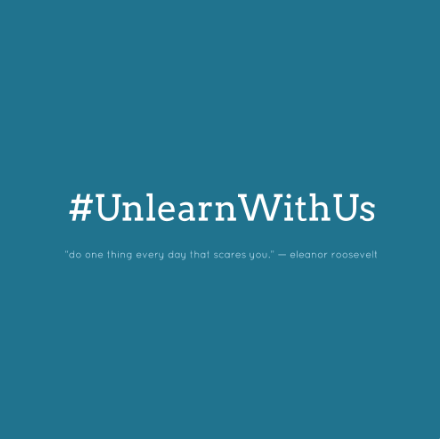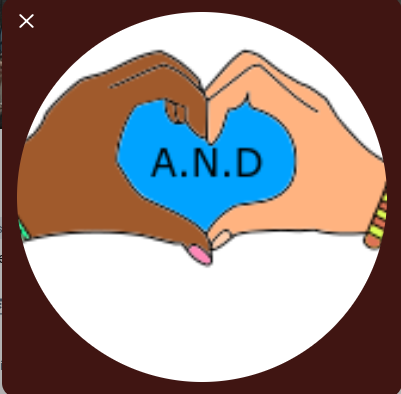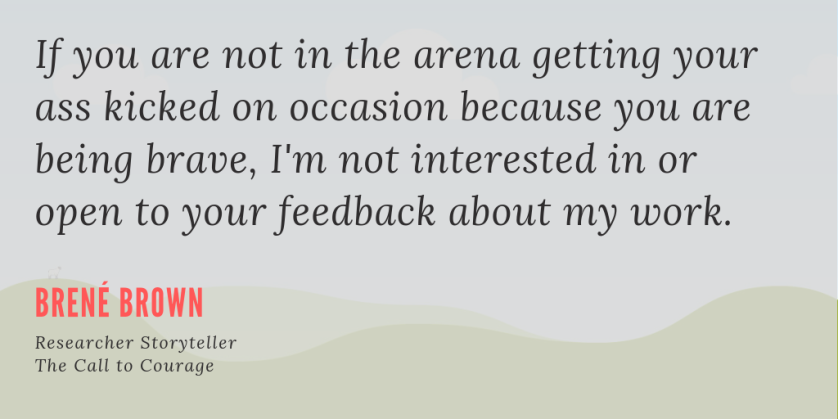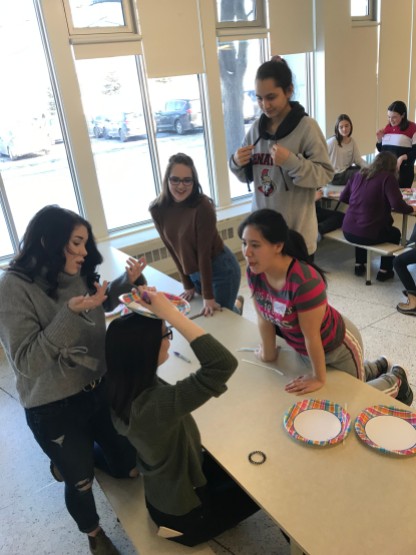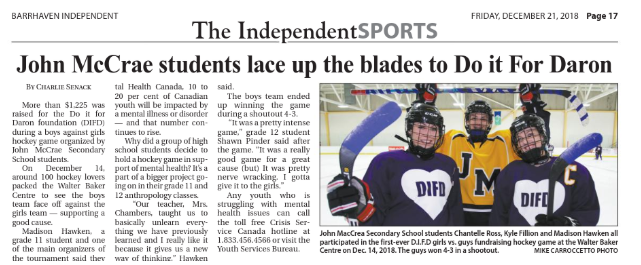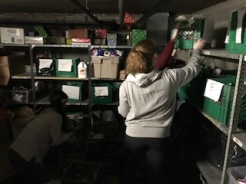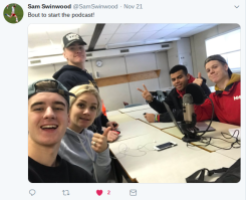
On my way home from work today I listened to my students recent Twisted System podcast episode # 8. In it, they talked about mental health and social media. They had a great conversation about how social media impacts their lives. If you would like a look into the teenage world and social media you should have a listen, I heard about apps and things that I had never heard of. In the episode they talk about how people only post the good on social media, how we often compare ourselves to others and what social media is doing to our mental health. This got me thinking about my own Twitter feed. If you follow me, you will know that I love showcasing what we are doing in our classroom. If I go back and look at my feed, things look like they are going great. There is no doubt that my students are doing amazing things. But our classroom is far from perfect. I started this blog two years ago to chronicle mine and my students unlearning journey, all of it, not just the good, I wanted to share the good, the bad and the ugly. So, I will let you in on a secret, my twitter feed does not represent the whole story.
Recently I have been feeling anxious, overwhelmed and exhausted. Sometimes I doubt myself and what I am doing with my students. Sometimes I feel like quitting and finding a different job completely. I struggle daily trying to manage this new way of “teaching”. I am innovating inside the box and sometimes that is really hard. Amongst the good, and there is so much of it, here is what we are dealing with. Here is the reality of innovating inside a box.
Students
I work with amazing students who are super on board with trying out a new way of learning. They have embraced it and are working hard on their passion projects. But they are teenagers. They all come with their different abilities. I want to learn about each and every one of them so that I can help them be successful. I want to give them my undivided attention to help them with their individual projects, but it is not always possible. These things are hard to do when you have 30 students in a class. (Can you imagine if we end up with 40, don’t get me started on that). Sometimes I feel like a complete failure. I feel like I am letting them down, that I am not doing enough and then I realize that I just don’t have anymore to give. I’m exhausted.
Accountability
My students are all working on different passion projects. They have between two or three 75 minute periods a week to work on their projects. For some they are in two of my classes so that means they have between 4 – 6 periods a week to work on their projects. My students are learning time management skills, they set their schedule for the week and are supposed to stick by it. Every Monday they set these goals for themselves. My students are teenagers and regular human beings. They don’t always follow through when they say they are going to, some times they are having a bad day and need a break and other days they work like mad men and women. On the days that they are not working it is hard to watch. On any given day I have students who are working diligently and then on another day they are off task and not working on their projects. This makes me really uncomfortable, however, what I have to remember is that this is how life works. I don’t know about you, but I rarely work diligently every single minute of the day. I often have to motivate myself to get work done. I have options to take a break or work and sometimes I take the option of procrastinating. If I tell my students what to do, how to do it and when to do then I am not allowing them the freedom to learn from their mistakes. But this is hard to watch. I am often there to help keep them motivated, but again I am only one person and so I have to leave it in their hands. Again, this is a constant struggle for me.
So many projects
Between three classes of approximately 25 – 30 students there are a ton of projects going on. In an ideal world I would have the opportunity to sit with each student / group of students and help them plan out their projects every week. I try to touch base with all students at some point throughout the week to see if they need help. I watch their weekly updates and provide suggestions to them every weekend but often I feel like a failure in doing this. The reality is that this model of teaching can happen in this environment, but a lot of onus has to be left on the students. Managing over 30 projects in really hard…period.
The Naysayers
As with any new or out of the box model of thinking there are going to be supporters, those who are curious and the naysayers. I know I have people rooting for me, I know that what I am doing is right for the students, but I often focus on the naysayers. I am super lucky to have admin and a whole experiential learning department and Director who supports what I am doing. I also have some amazing colleagues who have joined the crusade to change the way we educate our youth. It is awesome being able to chat with them about the things that they are trying out in their classrooms and to talk about the future of experiential learning. I have cheerleaders that I have met on Twitter and amazing community members and parents who support me. But I am human and unfortunately I often focus on those who just don’t get it. This is counterproductive and destructive, but sometimes I just can’t stop myself.
Mental Health
I struggle with anxiety and all of the above makes it worse. As mentioned already I often second guess what I am doing, I often feel out of control and I struggle with so many things that go on behind the scenes of my classroom.
It’s definitely not perfect but we will power through because we are rocking our projects, we are making so many community connections, we are learning our curriculum by doing, we are working on time management, we are making a difference, the students are empowered and we are learning from our failures.
We will be resilient and continue to:
- Do good deeds and podcast about them. (Stay tuned for their first episode)
- Create a prototype of an app to help fight antibiotic resistance.
- Pack birthday boxes for a young indigenous girl in the north.
- Create a podcast called Human 2.0 about AI awareness.
- Connect with mental health partners, fundraise and put together packages for teens who suffer from mental health.
- Work with and support students with intellectual disabilities.
- Run a kindness program in a middle school.
- Give lessons to classes about shark finning.
- Collect and donate clothing to the Salvation Army.
- Detail teachers cars to raise money for Miracle League.
- Rake lawns and collect sports equipment to raise money for Waupoos Family farm.
- Collect e-waste as a social enterprise.
- Create doggy care packages for the homeless who have pets.
- Create a cooking show and health and nutrition podcast.
- Run a DIFD hockey game to raise money and awareness for Mental Health.
- Support the local Santa Claus parade.
- Fundraise to support a family in need at Christmas.
- Create a social enterprise called STAIN. (start talking about it now period) to end stigma around women and their periods.
- Learn to sew with retired ladies from the community and work with Days for Girls to sew reusable feminine hygiene products for girls who stay home from school because of their periods.
- Podcast live on Voiced radio on the Twisted System Podcast.
- Take part in an anti anxiety yoga therapy program.
- Put on a fun day to raise money and awareness for Leukemia.
- Volunteer in elementary classrooms.
- Learn to grow an inside garden.
- Start a vegetarian blog with yummy recipes for everyone.
- Ride 200 kms to raise money and awareness for pancreatic cancer.
- Run a sports program for preschoolers weekly for free for parents who wouldn’t otherwise be able to afford it.
- Organize a blood donor clinic and get swabbed campaign.
- Volunteer at a retirement home and organize a prom for them.
- Interview Veterans and local politicians to help share the veterans concerns.
- Interview people and write songs about their stories.
- Organize a fundraiser for local housing community.
- Become climate change warriors by joining POW.
If you are in the midst of making a change, it is definitely not easy, but don’t give up – as you can see from the list above, it is so worth all the struggles.
Thanks for unlearning with us 🙂
R

